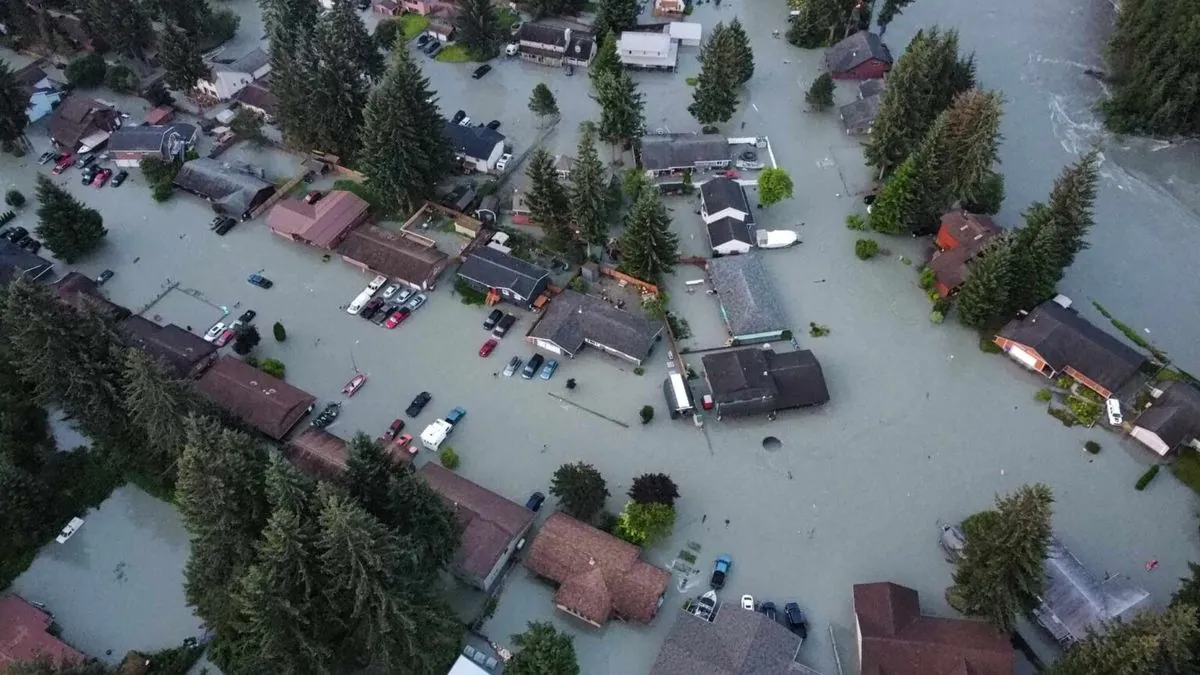In a recent incident that has heightened concerns about climate change impacts, Juneau, the capital city of Alaska, experienced unprecedented flooding caused by a glacial lake outburst. The event, which occurred last week, resulted in damage to approximately 290 residences and at least two businesses in the Mendenhall Valley area.
Robert Barr, the Deputy City Manager, confirmed the extent of the damage in an email statement. The flooding, which has become an annual concern for parts of Juneau, reached unprecedented levels this year, affecting a larger area of the Mendenhall Valley than ever before.
The root cause of this recurring issue lies in the retreat of a smaller glacier near the Mendenhall Glacier. As the glacier recedes, it leaves behind a basin that accumulates rainwater and snowmelt during spring and summer. When the water pressure becomes sufficient, it forces its way under or around the ice dam created by the Mendenhall Glacier, flowing into Mendenhall Lake and subsequently into the Mendenhall River.
This phenomenon, known as a Glacial Lake Outburst Flood (GLOF), has been occurring sporadically since 2011, occasionally flooding streets and homes near the lake and river. However, the impacts in the past two years have been particularly severe. Last Tuesday, the Mendenhall River crested at a record-breaking 15.99 feet (4.9 meters), surpassing the previous record set just a year ago by approximately one foot (0.3 meters).
The Mendenhall Glacier, a 13.6-mile-long ice mass located in the Mendenhall Valley, has been retreating since the end of the Little Ice Age in the 1700s. This retreat has accelerated in recent years due to climate change, contributing to the increased frequency and severity of flooding events.
Juneau, with a population of about 31,000 as of 2021, is uniquely vulnerable to such events. The city, founded during a gold rush in 1880 and named after prospector Joe Juneau, is only accessible by air or sea, with no road connections to the rest of North America. Its location in the Alaskan panhandle and its subpolar oceanic climate make it particularly susceptible to the effects of glacial melt.
To address the immediate needs of affected residents, the state of Alaska has implemented assistance programs. These include aid for home repairs, with a maximum individual or family allocation of $21,250, as well as support for replacing essential items and temporary housing for displaced residents. The exact number of people requiring such assistance is yet to be determined.
This event serves as a stark reminder of the ongoing impacts of climate change on Alaska's glaciers and communities. The Mendenhall Glacier, part of the Tongass National Forest (the largest national forest in the United States), has long been a popular tourist attraction. However, its rapid retreat now poses significant challenges to the surrounding area.
As Juneau grapples with the aftermath of this flooding, the incident underscores the need for long-term planning and adaptation strategies to address the evolving risks associated with glacial retreat and climate change in Alaska's capital city.
